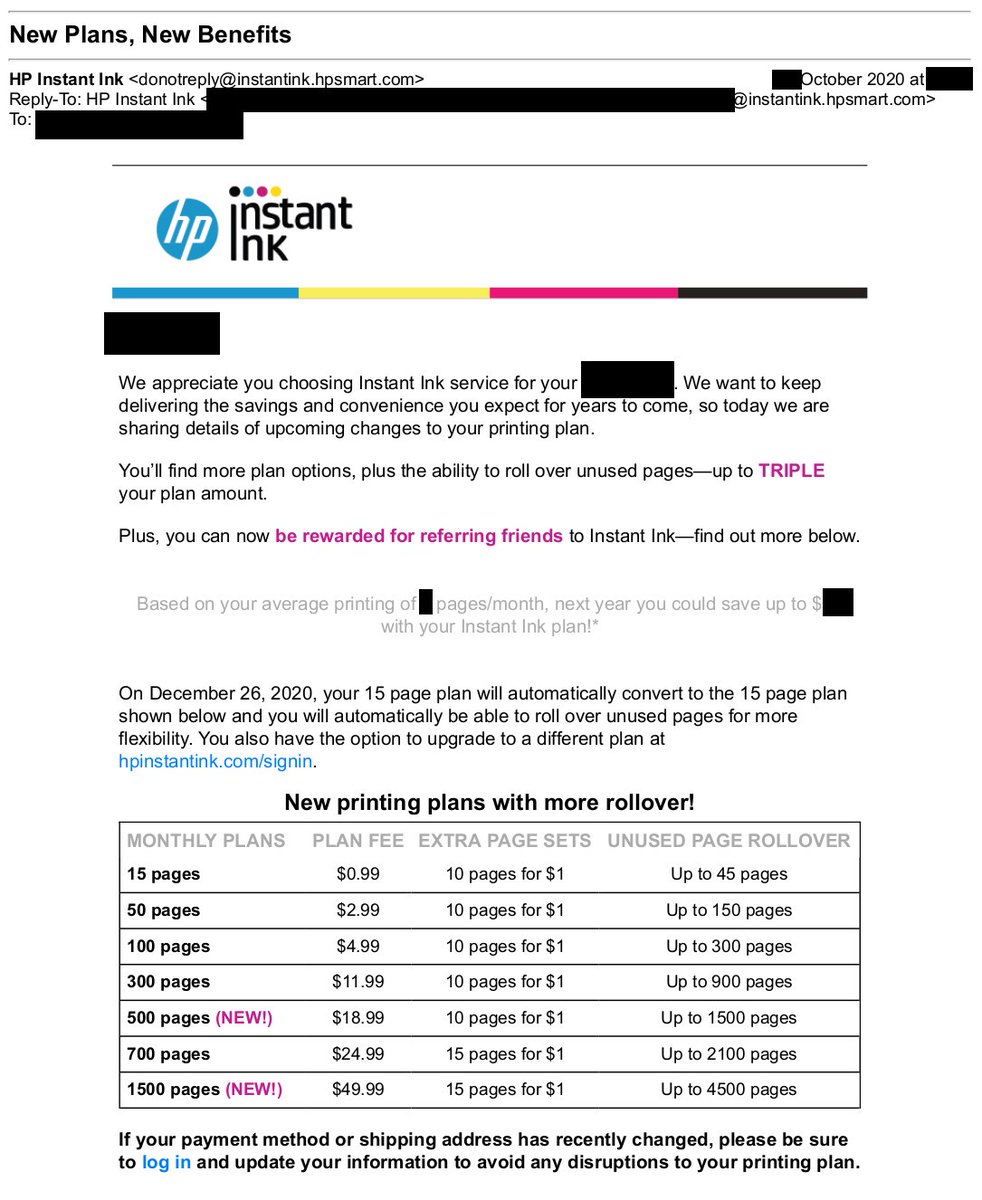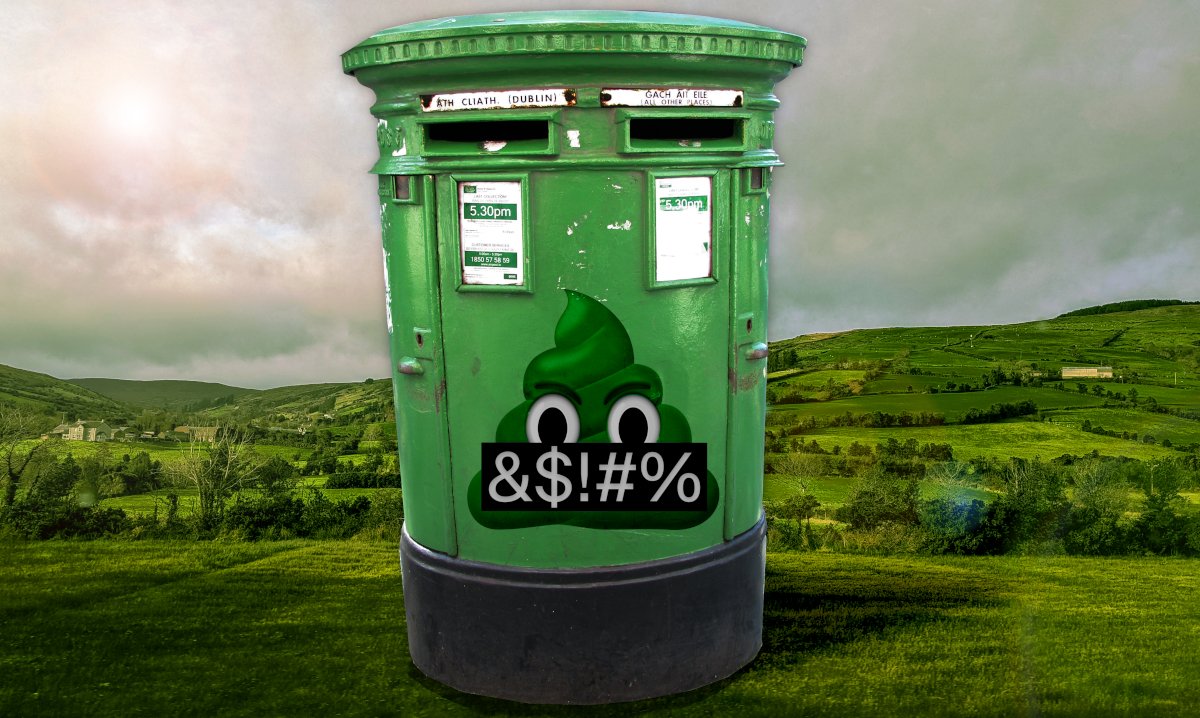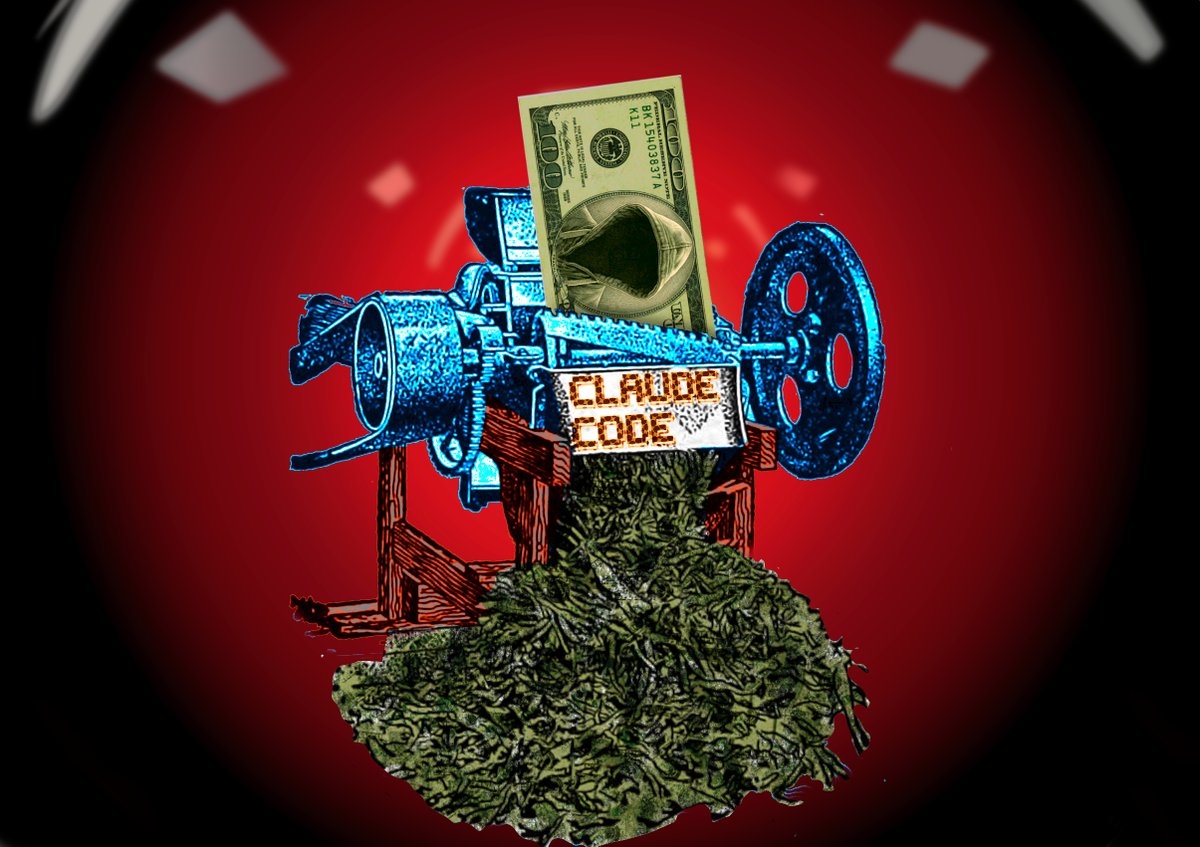HP never stopped innovating. From its origins in the 1930s as a leading electronics manufacturer to its role in the birth of PCs and performance servers, it has always demonstrated incredible ingenuity.
Today, that ingenuity is deployed in service of evil ink-based fuckery.
1/
Today, that ingenuity is deployed in service of evil ink-based fuckery.
1/
The printer-ink business model has always been a form of commercial sadism in which you are expected to put giant manufacturers' interests ahead of your own with no expectation of any sort of reciprocity.
eff.org/deeplinks/2020…
2/
eff.org/deeplinks/2020…
2/
After all, when your profits depend on charging more for ink than vintage Veuve-Clicquot, you need to get up to some serious shenanigans to get your customers to drain their bank accounts to fill their printers.
3/
3/
By contemporary standards, the opening hostilities in the ink-wars look positively quaint:
* Manufacturing special half-full cartridges to ship with new printers so their owners have to buy a new set just days after the open the box
4/
* Manufacturing special half-full cartridges to ship with new printers so their owners have to buy a new set just days after the open the box
4/
* Requiring frequent "calibration" printouts that use vast amounts of ink
* Gimmicking cartridges' sensors to declare them "empty" even when there's still ink in them
Thing is, all of this just makes official printer ink less desirable and fuels demand for third party ink.
5/
* Gimmicking cartridges' sensors to declare them "empty" even when there's still ink in them
Thing is, all of this just makes official printer ink less desirable and fuels demand for third party ink.
5/
For this to work, you need to win a two-front war: one on your customers and the other on your competitors. HP is fighting both.
First they pioneered the use of DRM to detect and prevent third-party ink.
6/
First they pioneered the use of DRM to detect and prevent third-party ink.
6/
Then when ink makers started making their own chips, or harvesting chips out of discarded cartridges to use in news ones, HP got US customs to seize the product, calling it a patent infringement.
7/
7/
But the real ugliness started in March 2016, when HP pushed out a fake "security update" for inkjet printers. Owners who ran the update saw nothing, just a software version number that went up by one.
8/
8/
What they didn't know was that they've been given an asymptomatic infection - a malicious update that only kicked in five months later, after everyone had had a good long time to update. That update's real purpose was to detect and reject third party ink.
9/
9/
It went off right after school started, stranding cash-strapped parents with a year's worth of ink for their kids' school projects. People were outraged. HP issued a nonpology.
eff.org/deeplinks/2016…
10/
eff.org/deeplinks/2016…
10/
(One year later, they did it again)
gizmodo.com/one-year-after…
Every time HP got caught doing something evil, they had the same excuse: "that's the deal we offered and you accepted it."
11/
gizmodo.com/one-year-after…
Every time HP got caught doing something evil, they had the same excuse: "that's the deal we offered and you accepted it."
11/
For example, if the box says "Works best with HP ink," then you are "agreeing" that it might not work with other ink. Nevermind that the only reason your printer doesn't work with other ink is that HP tricked you into downgrading it so that the ink stopped working.
12/
12/
This is the grifter's all-purpose excuse: "If you didn't want me to rip you off, then why did you click 'I agree'?"
HP was just getting started, though. In the ideal world, you wouldn't even own your printer ink, you'd just RENT it.
13/
HP was just getting started, though. In the ideal world, you wouldn't even own your printer ink, you'd just RENT it.
13/
Enter HP Instant Ink.
support.hp.com/us-en/document…
This is "ink as a service." You pre-commit to printing a certain number of pages/month and they mail you ink, which they own. You're not buying the ink, you're buying the right to use it.
14/
support.hp.com/us-en/document…
This is "ink as a service." You pre-commit to printing a certain number of pages/month and they mail you ink, which they own. You're not buying the ink, you're buying the right to use it.
14/
If you don't print your quota in a month, some of the pages roll over, but they don't let you bank more than a few months' worth - and to keep those pages, you have to keep paying for your sub. Meanwhile, if you blow through your limit, you get charged for every page.
15/
15/
This is a weird and unpalatable idea, so to sell it, HP rolled out a pay-on-price "Free Ink for Life" plan that gave you 15 pages every month for as long as you owned your printer.
16/
16/

But this is HP we're talking about, so words have no meaning. Last month, HP notified its "free ink for life" customers that their life had ended, and they were being moved to a new afterlife where they had to pay $0.99/month, forever, or else.
17/
17/

This Darth Vader "Pray I don't alter it further" shit is the most on-brand HP thing ever
Worse still are the many imitators HP inspires - all those companies that have decided that it's your solemn duty to arrange your affairs to suit their shareholders' needs.
18/
Worse still are the many imitators HP inspires - all those companies that have decided that it's your solemn duty to arrange your affairs to suit their shareholders' needs.
18/
The right-to-repair criminals like Apple, John Deere and Medtronic. Tesla and GM, Juicero and Keurig - companies that are not merely content with waging war on customers, but also on competitors who offer those customers shelter.
19/
19/
Since the turn of this century, HP has been shedding its productive business units that make useful products, and focusing its legal and engineering departments on innovations in shitty dystopian hack-futurism.
eof/
eof/
• • •
Missing some Tweet in this thread? You can try to
force a refresh










